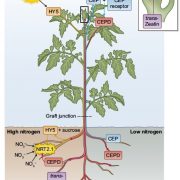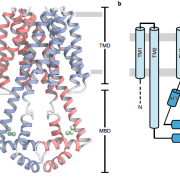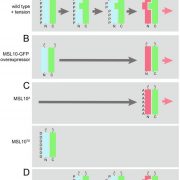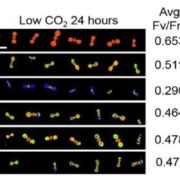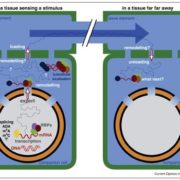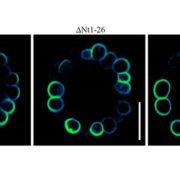The biotrophic development of Ustilago maydis studied by RNAseq analysis (Plant Cell)
 The corn smut fungus Ustilago maydis that causes tumorous symptoms on all aerial parts of maize has established itself as a model system to dissect host colonization strategies by biotrophic fungi. Transcriptional responses upon U. maydis colonization were previously demonstrated by several studies using an engineered solopathogenic strain of U. maydis. However, a time-resolved transcriptional profile across different plant-associated stages in U. maydis lifecycle was still unknown. Lanver et al. have filled this gap by performing an in depth transcriptional profiling across different plant-associated developmental stages using compatible haploid wild-type strains. The authors focused on genes involved in fungal metabolism, nutritional strategies, secreted effectors and regulatory networks. Waves of effector expression were regulated across different infection stages during symptom formation. Several nutrient transporters were linked to effector expression, showing nutrient dependent as well as independent expression. This work also identified several yet uncharacterized transcription factors that likely play a role in tumour development. Hence this study provides a new resource to understand complex symptom formation and modulation and acquisition of nutrients by fungi in the plant environment. (Summary by Amey Redkar) Plant. Cell. 10.1105/tpc.17.00764
The corn smut fungus Ustilago maydis that causes tumorous symptoms on all aerial parts of maize has established itself as a model system to dissect host colonization strategies by biotrophic fungi. Transcriptional responses upon U. maydis colonization were previously demonstrated by several studies using an engineered solopathogenic strain of U. maydis. However, a time-resolved transcriptional profile across different plant-associated stages in U. maydis lifecycle was still unknown. Lanver et al. have filled this gap by performing an in depth transcriptional profiling across different plant-associated developmental stages using compatible haploid wild-type strains. The authors focused on genes involved in fungal metabolism, nutritional strategies, secreted effectors and regulatory networks. Waves of effector expression were regulated across different infection stages during symptom formation. Several nutrient transporters were linked to effector expression, showing nutrient dependent as well as independent expression. This work also identified several yet uncharacterized transcription factors that likely play a role in tumour development. Hence this study provides a new resource to understand complex symptom formation and modulation and acquisition of nutrients by fungi in the plant environment. (Summary by Amey Redkar) Plant. Cell. 10.1105/tpc.17.00764


